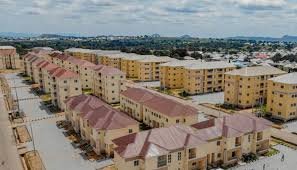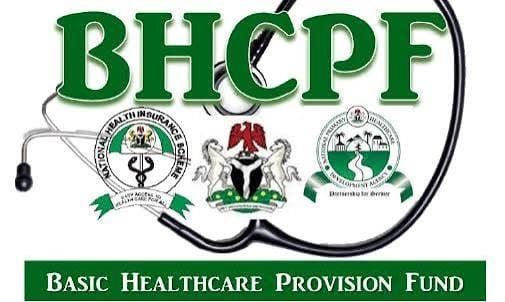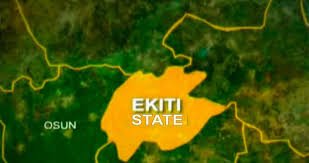
ABUJA, Nigeria – Hope was supposed to rise from the red earth of the Renewed Hope Estate — the flagship housing project sold as a lifeline for struggling Nigerian families. But on the ground, that promise feels increasingly hollow. What should have been bustling construction sites now echo with silence, abandoned foundations, and workers frustrated by “lists that never open” and prices that drift further out of reach. In this report, Juliet Jacob explores why Nigeria’s most celebrated housing intervention is failing to meet the expectations of thousands waiting for an affordable home.
A Crisis Stretching Two Decades
Nigeria’s housing deficit — now estimated at over 28 million units — has worsened sharply in the past twenty years. Rapid population growth, soaring construction costs, and minimal investment in social housing have driven millions into overcrowded tenements and sprawling informal settlements.

Across Lagos, Abuja, Port Harcourt and Kano, the poorest citizens continue to pay the highest price: exploitative rents, unsafe structures, poor sanitation, and the exhausting commute forced on those unable to live close to their workplaces.
It is against this backdrop that the Federal Ministry of Housing and Urban Development unveiled the Renewed Hope Estate Programme, the administration’s flagship solution to a crisis that has outgrown three governments.
Grand Promises, High Prices
The units — priced between ₦8.5 million and ₦12.5 million — are presented as the most ambitious government-backed attempt at affordable homeownership in recent years.
Housing Minister Ahmed Musa Dangiwa insists the programme is a break from past failures:
“Land was provided at no cost and infrastructure was subsidised. Our target beneficiaries are civil servants, market women, artisans and cooperative groups. The goal is fairness — bridging the inequality in access to housing.”
But for millions of low-income Nigerians, the central question remains: affordable for whom?
When ‘Affordable’ Becomes Out of Reach
Nigeria’s affordability crisis is not just about home prices — it’s about income. Roughly 70% of the workforce earns below ₦100,000 monthly.
A junior civil servant earns ₦45,000–₦70,000 after deductions. A mid-level worker earns ₦150,000–₦200,000. Yet even these groups would need to commit six years of their entire income, without eating or paying rent, to afford the unit prices.
Economist Dr Ngozi Uche calls it “mathematically impossible.”
“Globally, a home is considered affordable only if it costs three to five times a household’s annual income. A Nigerian civil servant earning ₦1.8 million a year should be able to afford between ₦5.4 and ₦9 million. Even then, the mortgage hurdles make it unrealistic.”
The programme, she warns, is veering toward a familiar pattern:
“We risk repeating mistakes — schemes advertised for the poor but ultimately captured by wealthier groups.”
Past Wounds, Present Skepticism
Low-income Nigerians have seen this movie before.
The National Housing Programme (NHP) famously ended up serving wealthy buyers and senior officials. The Federal Integrated Staff Housing (FISH) scheme sputtered under bureaucracy.
Today, only 5.5 million Nigerians contribute to the National Housing Fund — meaning more than 90% of workers are excluded from the mortgage systems required to access homes under Renewed Hope.
Experts warn that without sweeping reforms, Renewed Hope could become Renewed Disappointment.
Civil Servants: “It Sounds Good on TV, But…”
For Mr Victor, a civil servant in Abuja, the programme is both promising and painful.
He acknowledges the value of subsidised land and infrastructure but says the reality for workers is grim:
“Transport costs have risen by over 200% since subsidy removal. Food prices have doubled. School fees are climbing. Most of us survive on loans. How do we buy a ₦10 million house?”
More frustrating, he says, is the lack of accessible information:
“The application link has been inactive for weeks. No orientation. No clear process. It makes you wonder if the government is ready.”
Teachers Locked Out
Teachers, among Nigeria’s lowest-paid professionals, feel even more excluded.
Chioma, a teacher in the FCT earning ₦60,000 monthly, says the scheme is not designed with people like her in mind:
“There is no orientation, no sensitisation, no simplified application process. Everything feels tailored for those who already earn more.”
She highlights a worsening retention crisis:
“Teachers leave every month because they can’t afford to live in Abuja. Homeownership feels like a dream meant for someone else.”
For many teachers and other low-wage workers, rent alone consumes 40–50% of their income. Transport takes another 20–30%. What remains cannot buy a plot, let alone a federal house.
Transparency: The Missing Block
Another concern is the secrecy surrounding estate locations.
Civil society organisations warn that failing to publish site addresses, completion stages and allocation data creates room for political selection and backdoor deals.
Housing advocate Mr Abu puts it bluntly:
“If the government is proud of this programme, why hide the addresses? Transparency is the first step to credibility.”
Developers Defend the Numbers
Private developers argue the prices are not unreasonable when measured against Nigeria’s volatile construction market.
In just three years:
Cement prices tripled
Iron rods rose by nearly 300%
Transportation costs surged after subsidy removal
The government’s free land and partial subsidies, developers say, already lower prices significantly.
Yet they admit the obvious: “Without strong mortgage support and lower interest rates, most Nigerians simply cannot afford these units.”
Payment Options: Flexible but Ineffective
The programme offers four payment routes, but each has structural barriers: Outright purchase – attracts wealthy buyers, excluding low-income groups, mortgages – difficult documentation, high equity deposits, long waiting periods, rent-to-own – limited availability, long waiting lists, and installment plans – monthly payments exceed what most low-income earners can spare.
Housing analyst Olumide Akande warns: “Unless payment systems reflect actual income levels, these options will remain theoretical.”
Politics or Policy?
The scheme arrives amid rising public frustration over inflation, insecurity, and cost of living. Some analysts believe it is also a political project aimed at restoring public confidence.
But as one expert noted off record: “Housing is not solved by press conferences. It is solved by policy depth.”
If implementation remains opaque, and if pricing continues to outpace incomes, the programme may join a growing archive of well-packaged but failed government interventions.
The Reality for the Poor: Still Locked Out
For low-income earners — market traders, artisans, vulcanisers, bus drivers, cleaners, petty shop owners — the Renewed Hope homes might as well be in another country.
Without radical reforms in:
Salary structures
Subsidy mechanisms
Mortgage accessibility
Social housing investment
Nigeria’s housing inequality will continue to widen.
A Promise in Search of a Foundation
The Renewed Hope Housing Programme has potential. But potential is not a home.
As advocates, analysts, and citizens continue to demand transparency and affordability, one question lingers:
Will Renewed Hope deliver a livable future — or simply recycle old disappointments under a new banner?
Only time — and honesty — will tell.




